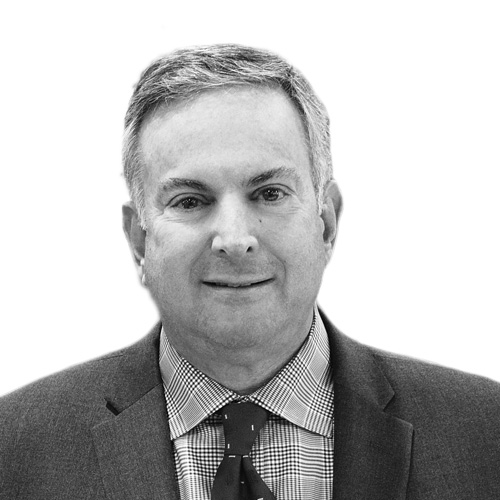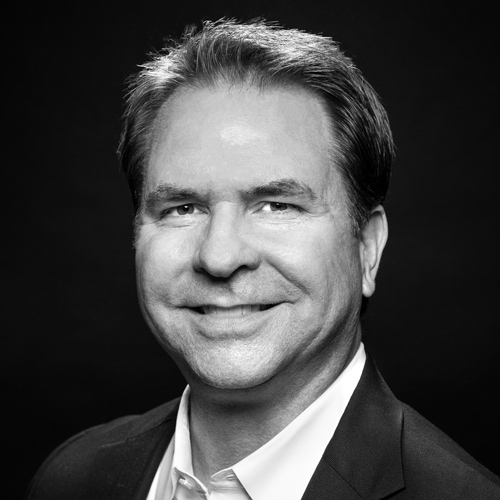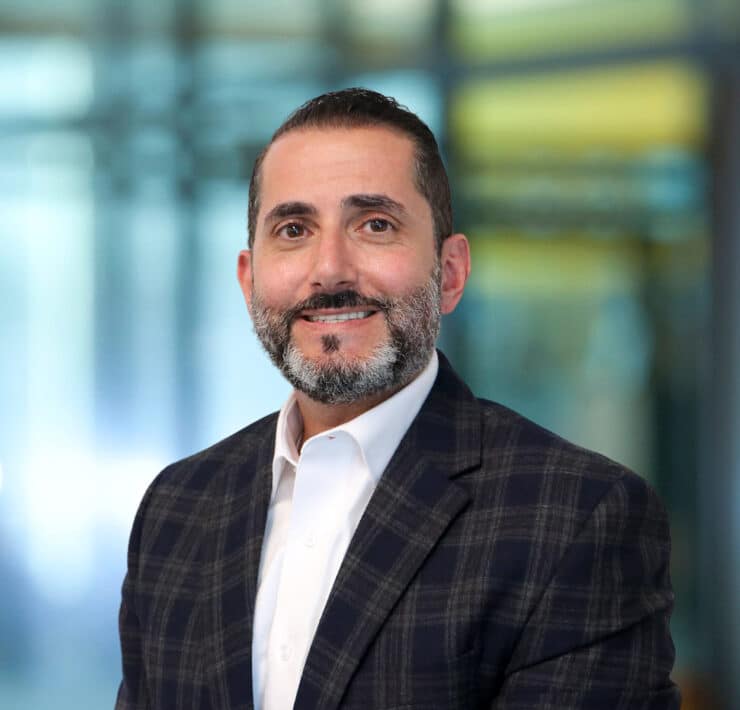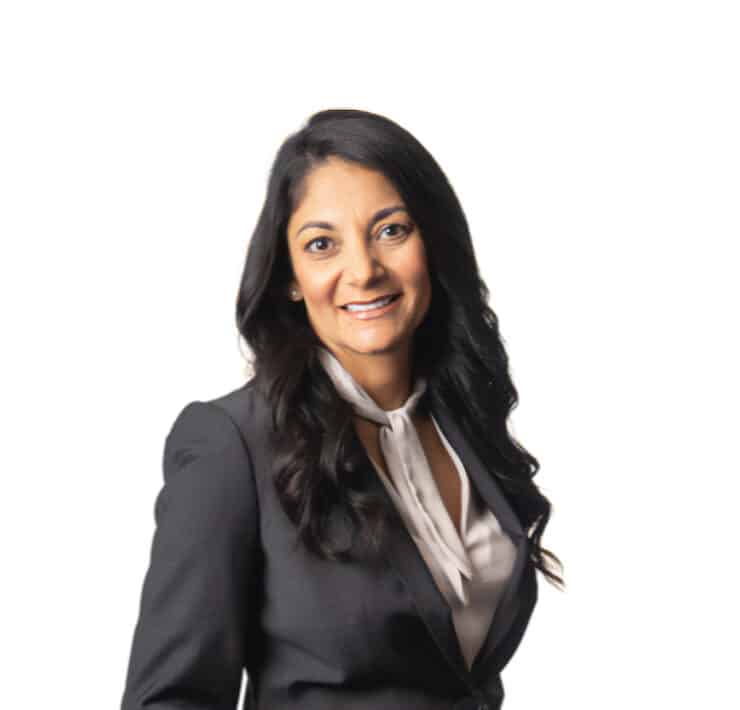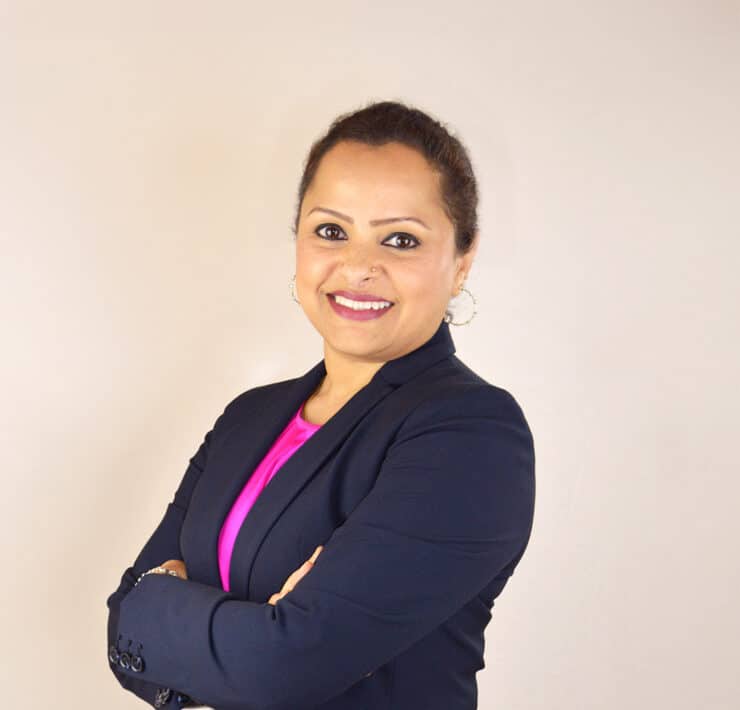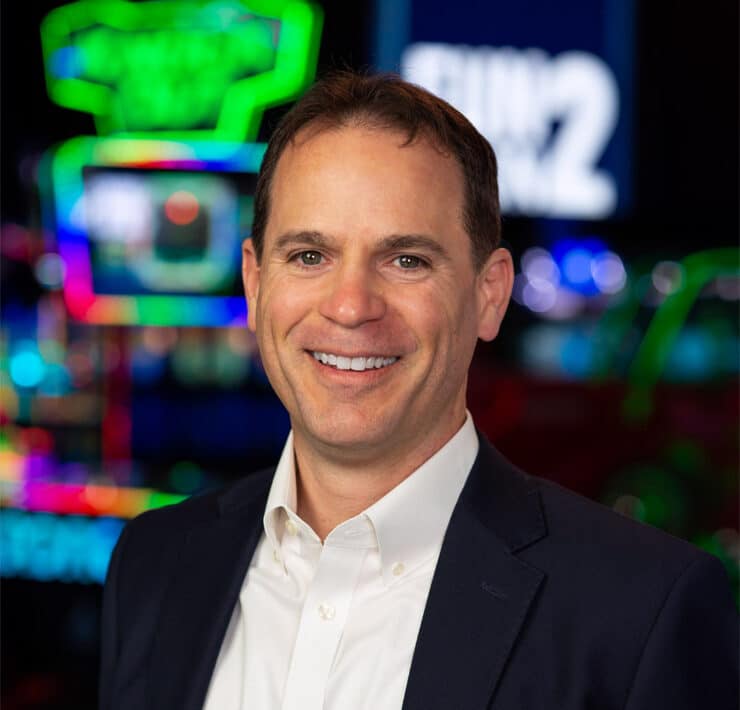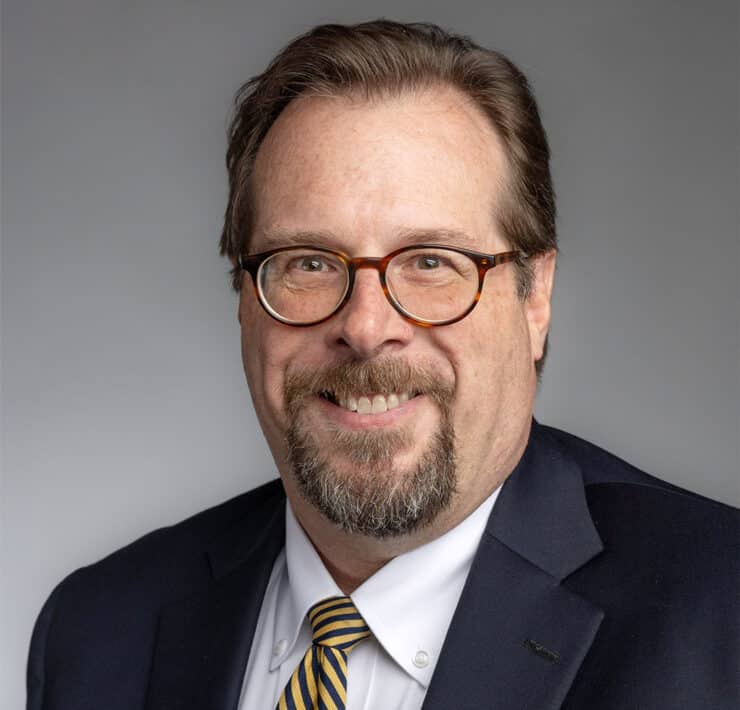Fady Qaddoura sits in the nervous system of the City of Indianapolis. It’s a hectic place to be. Indianapolis has a population of more than 858,000, an average $50 million in structural budget deficit, and a mayor publicly committed to criminal justice reform, neighborhood revitalization, transparency, accountable budgeting, and reduction in homelessness, food deserts, and blight.
When offered the job of controller and chief financial officer, the number two executive under Mayor Joe Hogsett, Qaddoura didn’t see these challenges as a deterrent. He saw them as a possibility.
“My office doesn’t receive compliments. We receive complaints. I could not ask for a better opportunity by which I could jump into all these issues and be a public servant,”Qaddoura says. “If everything was fixed and the city was not facing all these challenges, I would not have accepted the job.”
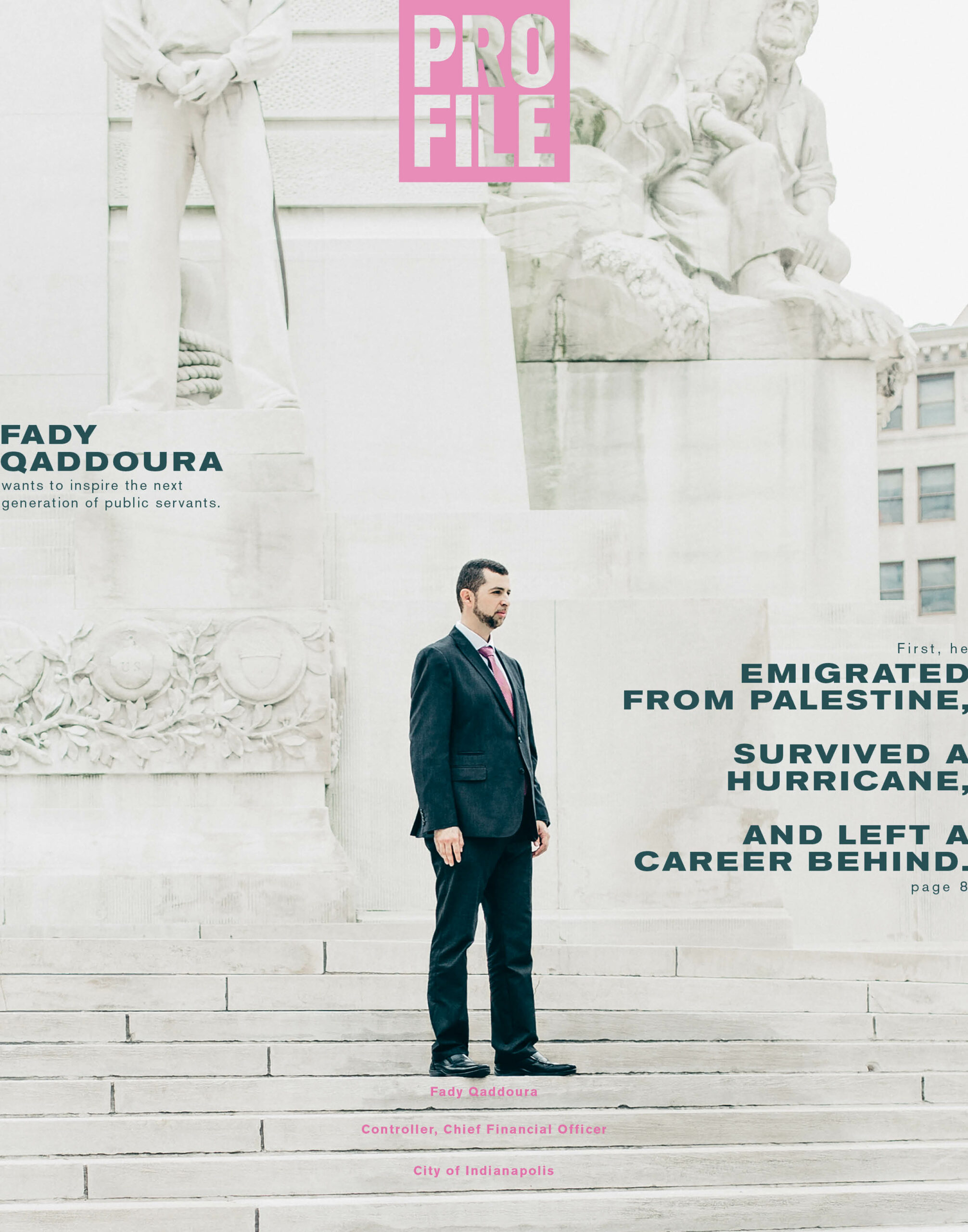
From Israel to New Orleans
In 2006, Qaddoura had a budding career as a junior IT executive. He just completed his bachelor’s and master’s degrees in computer science. He was on track to achieving a level of prosperity that he and his family hadn’t known when he was growing up in the West Bank of Israel.
In 2005, Hurricane Katrina left Qaddoura, his wife, and their newborn daughter homeless. Only the generosity of countless nonprofits and relief agencies helped them back on their feet. Before that, he held a job at a gas station in one of New Orleans’s most violent neighborhoods. That’s where his preconceptions met the realities of American life came up. He also faced challenges while growing up in the city of Ramallah, north of Jerusalem on the West Bank. There were, however, plenty of opportunities to learn too.
Raised in the Muslim faith, educated in a Christian school, and born in a Jewish area, Qaddoura learned from an early age to see the humanity in people regardless of difference. And that shows in the way he approaches his city’s population.
Read more of Profile’s Top 50 articles.
“In my mind, when I came to the United States, I envisioned a beautiful country with the best of ideals,” he says. “I thought injustice only existed in third-world countries.”
Qaddoura immediately saw everything from injustice to generosity in these experiences. That was when he knew had to do more. He decided to change his career path. So, he left behind a career he had worked hard to build through scholarships and working full-time as student.
“I realized I can’t spend the rest of my life just seeking a paycheck and not adding value to humanity,” Qaddoura says. “My life was touched by the kindness and generosity of so many people that I can’t just not pay them back.”
Reinventing Himself
Armed with a passion for public service, Qadduora reinvented himself at the age of twenty-nine. That’s when he began working as an intern for the Indiana General Assembly. At the state Senate and House of Representatives, he worked on criminal justice reform, gerrymandering issues, educational policies, and reducing recidivism.
However, Qaddoura decided needed to move from the legislative to the executive branch to make more of an impact. There, he could help the state of Indiana implement the Affordable Care Act. With a blend of IT, healthcare, and leadership experience, Qaddoura provided real-time implementation dashboards to then-governor Mike Pence.
It’s a story of seemingly disparate experiences and accomplishments. But all the twists and turns add up to a career as a compassionate public servant. Whether it’s healthcare IT or teaching, legislative or executive, data or philanthropy, Qaddoura always returns to the topic of service.
“I preach to my teams that they don’t report to me; they serve everyone,” he says. “My office is structured to be an honest broker of information.”
Joe Hogsett’s campaign for Mayor of Indianapolis stressed fiscal responsibility, pledging transparent spending and a yearly reduction in budget. But Qaddoura emphasizes the compassionate side of those pledges. If there seems to be any contradiction between these, Qaddoura doesn’t see it.
“When people think about budgets or finance, they just think about Excel sheets, software, and crunching numbers,” Qaddoura says. “Our philosophy is different: behind every dollar, there’s a life that is being impacted. The budget should reflect our values.”
Criminal Justice Reform in Indianapolis
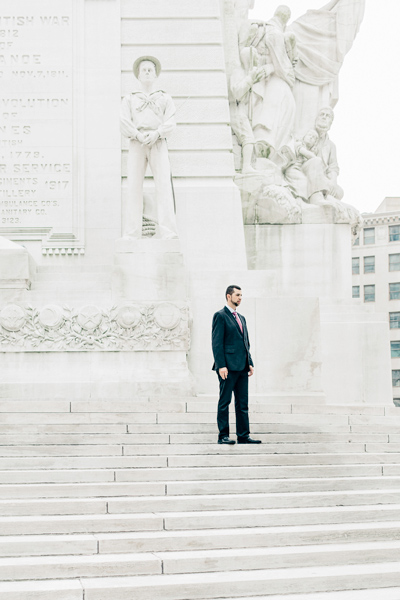
When Qaddoura talks about his research in criminal justice reform, the connection between compassion and what’s good for the City budget seems fairly seamless. One area that highlights this way of thinking is the way that he and Mayor Hogsett, a former prosecutor and US Attorney, approach criminal justice.
“Forty to fifty percent of inmates in Marion County and the City of Indianapolis suffer from some form of mental illness,” Qaddoura says. “Mental health should not be criminalized. It’s a healthcare issue and should be addressed as such.”
Other parts of Qaddoura’s criminal justice research emphasize treatment of people convicted of felonies that’s both compassionate and financially sensible. He explains concepts such as the legal cliff, by which productive citizens lose their livelihoods and even their homes after conviction—becoming dependent on government assistance they hadn’t previously needed and requiring costly work-training programs in prison that they also hadn’t needed before.
Qaddoura serves on the Criminal Justice Planning Council of Indianapolis. He says that the council’s stance on success in the prison system differs from many others. “We don’t define our success by how many beds we fill. We define success by how many we keep empty,” he says. “The laws we come up with can strip people from their accomplishments, and taking away people’s livelihood makes them less productive.”
Compassion & Generosity
It might seem counterintuitive, but Qaddoura bases his initiatives as much on data and research as compassion and generosity. Qaddoura is now completing a PhD in philanthropy and public policy at Indiana University Lilly School of Philanthropy. He has also been teaching a multidisciplinary history of philanthropy in the United States at the school since 2014. It might be surprising that he takes this work on in addition to his many other responsibilities. To him, though, it’s vitally important.
“It’s worth it for the ability to change someone’s life, to tell them they are smart, courageous, and wise,” Qaddoura says. “I aspire to change lives and help people become public servants. It’s what keeps me alive.”
A message from Anthem BlueCross BlueShield: Healthcare, a top priority! With a rich history in public service and nonprofit work, Fady Qaddoura’s earning a reputation as someone with a huge heart and sharp eye for making systems work better. His support for health care initiatives aims to keep us healthy well into the next century.

